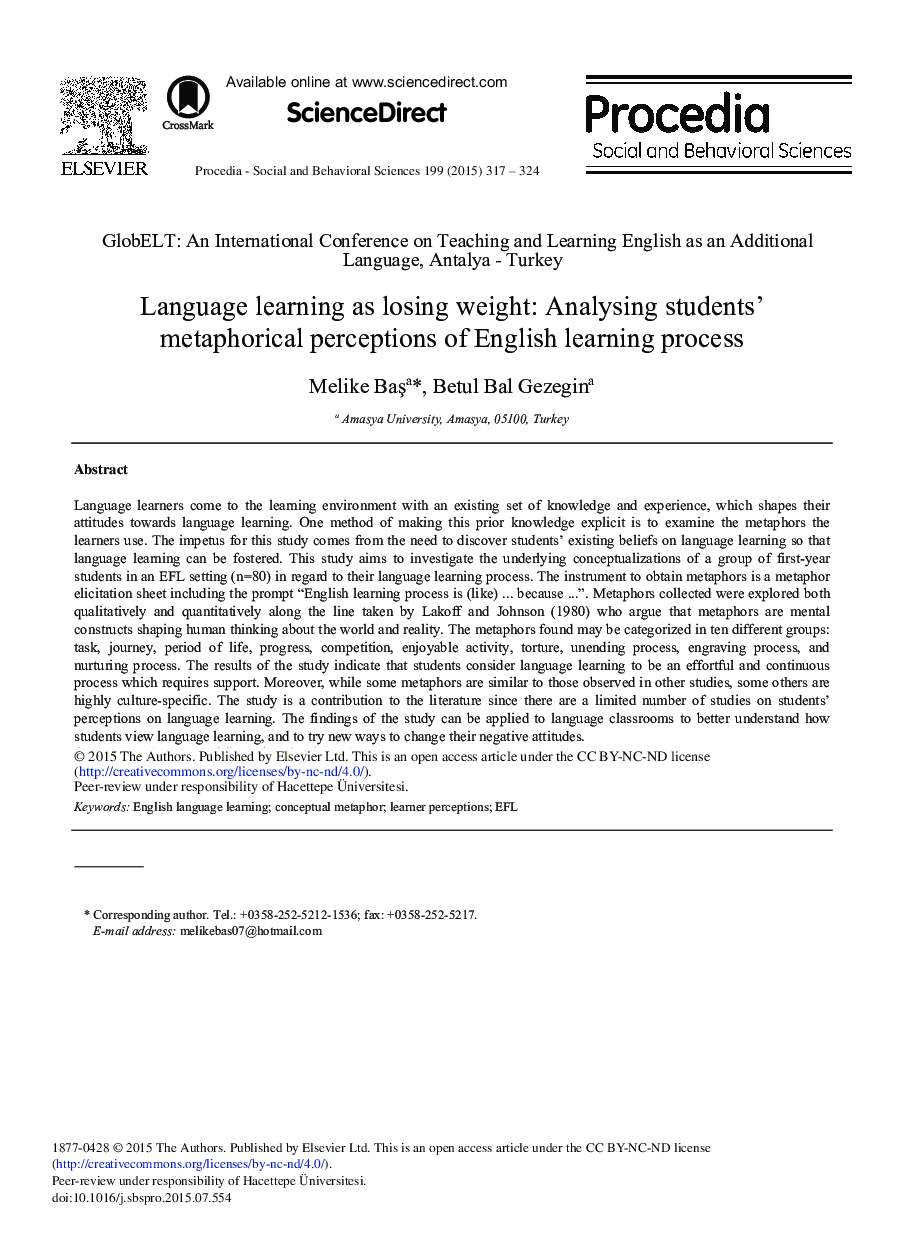| Article ID | Journal | Published Year | Pages | File Type |
|---|---|---|---|---|
| 1109792 | Procedia - Social and Behavioral Sciences | 2015 | 8 Pages |
Language learners come to the learning environment with an existing set of knowledge and experience, which shapes their attitudes towards language learning. One method of making this prior knowledge explicit is to examine the metaphors the learners use. The impetus for this study comes from the need to discover students’ existing beliefs on language learning so that language learning can be fostered. This study aims to investigate the underlying conceptualizations of a group of first-year students in an EFL setting (n=80) in regard to their language learning process. The instrument to obtain metaphors is a metaphor elicitation sheet including the prompt “English learning process is (like) . because .”. Metaphors collected were explored both qualitatively and quantitatively along the line taken by Lakoff and Johnson (1980) who argue that metaphors are mental constructs shaping human thinking about the world and reality. The metaphors found may be categorized in ten different groups: task, journey, period of life, progress, competition, enjoyable activity, torture, unending process, engraving process, and nurturing process. The results of the study indicate that students consider language learning to be an effortful and continuous process which requires support. Moreover, while some metaphors are similar to those observed in other studies, some others are highly culture-specific. The study is a contribution to the literature since there are a limited number of studies on students’ perceptions on language learning. The findings of the study can be applied to language classrooms to better understand how students view language learning, and to try new ways to change their negative attitudes.
